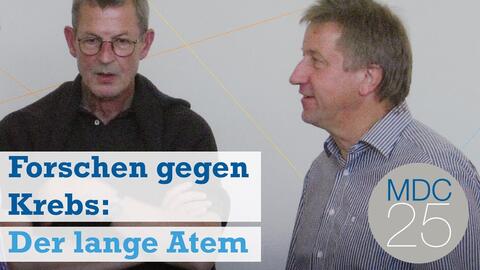
Uckert Lab
Molecular Cell Biology and Gene Therapy (Emeritus)
Profile
Adoptive T cell therapy (ATT) of cancer requires the preparation of antigen-specific T cells that recognize and eradicate tumor cells. While the use of tumor-infiltrating lymphocytes showed some efficacy of ATT for some tumor entities, the use of T cells engineered with T cell receptors (TCR) or chimeric antigen receptors (CAR) paves the way for a broader clinical application.

A long and winding road – a film with Thomas Blankenstein, Elisa Kieback, Mathias Leisegang, Antonio Pezzutto and Wolfgang Uckert. (with English subtitles)
Contact
Research
Antigen specificity of T cells is determined by their T cell receptor (TCR) and can be redirected by the transfer of TCRα/β genes. TCR gene-modified T cells can elicit effector functions against any target antigen. The adoptive transfer of TCR-redirected T cells into cancer patients has already led to first clinical success.
The focus of our group lies on the adoptive transfer of TCR-redirected T cells for the therapy of cancer and viral diseases. We address questions related to: (i) generation of T cells with new antigen specificity by TCR gene transfer, (ii) safety aspects of TCR-redirected T cells with respect to the recognition of self-antigens, (iii) adoptive transfer of TCR-redirected T cells in mice as a prerequisite for the application of those cells in human diseases, and (iv) optimization of TCR transfer vectors.
The expected results serve as a platform for the genetic engineering of „designer“ T cells which are the basis for clinical studies using adoptive T cell therapy with TCR-gene-modified T cells.
